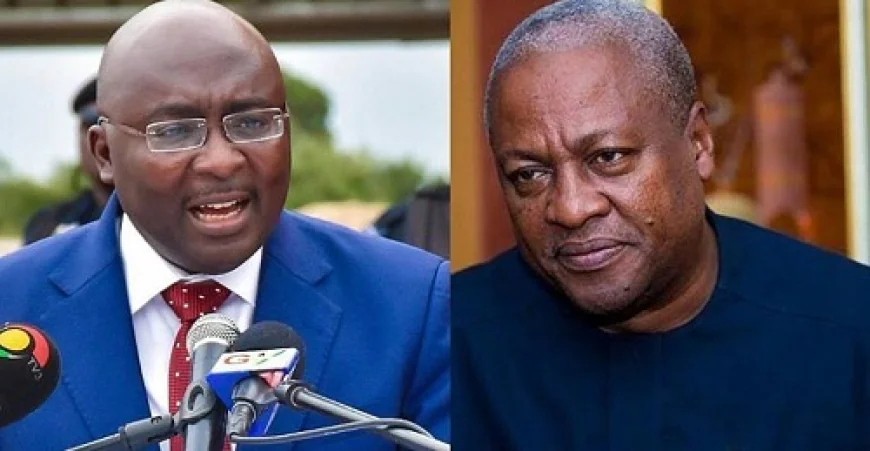Bawumia Jabs Govt Over GHC1 Fuel Levy
The vociferous former veep says if the government continues on this trend, it will be unpopular soon and will be rejected by Ghanaians come December 2028

The flagbearer of the opposition New Patriotic Party (NPP), Dr. Mahamudu Bawumia, has criticised the newly introduced GHS1 energy sector fuel levy, branding it a “Dumsor Levy” and accusing the governing National Democratic Congress (NDC) of policy hypocrisy and economic burden.
His remarks come in the wake of the Energy Sector Levy (Amendment) Bill, 2025, passed by Parliament on Tuesday, June 3, following its presentation by Finance Minister Dr. Cassiel Ato Forson. The bill increases the levy on petroleum products by GHS1 per litre, aimed at generating funds to settle energy sector debts and ensure reliable power supply.
“They Introduced Dumsor Levy” – Bawumia
Addressing party supporters on Wednesday, June 4, Dr. Bawumia criticised the NDC's handling of the economy and accused the Mahama-led government of double standards.
“The NDC has been telling lies. On June 3, you all saw what they did in the evening. They have introduced ‘Dumsor Levy,’” he said. “They criticised the E-levy and cancelled it, and now they have introduced a Dumsor Levy. This is the eighth tax after the E-levy.”
Bawumia contrasted the cost of the new levy with the controversial Electronic Transactions Levy (E-levy), noting:
“If you buy one gallon of petrol, you will pay GHS1. If you buy GHS1,000 worth of petrol, you will pay GHS83 in taxes. With the E-levy, GHS1,000 in transactions attracted only GHS10,” he pointed out.
Warning of More Taxes Ahead
Bawumia warned that under an NDC administration, more taxes could be introduced, projecting that the situation may worsen by 2028 if the party remains in power.
“More of the taxes will be introduced when we get to 2028. I’m hopeful that Ghanaians will see their true colours and they will tell us to return to power,” he stated.
Mahama and Ato Forson Defend the Fuel Tax
In contrast, President John Dramani Mahama has defended the levy, describing it as a necessary step to rescue the energy sector, despite the economic challenges it may cause.
Presenting the bill, Finance Minister Dr. Ato Forson justified the GHS1 increase by pointing to the GHS3.1 billion debt burden within the energy sector and a $3.7 billion funding requirement to clear outstanding obligations.
He also noted that an additional $1.2 billion would be required to procure fuel for thermal power generation in 2025.
Dr. Forson reassured the public that the effect of the tax increase would be partially offset by the current stability of the Ghanaian cedi, which has led to lower importation costs in the petroleum sector.
Background: What Is the GHS1 Fuel Levy?
The Energy Sector Levy (Amendment) Bill, 2025 introduces a GHS1 charge on every litre of fuel purchased. The purpose is to:
-
Raise funds to settle debts to Independent Power Producers (IPPs)
-
Improve electricity generation and grid reliability
-
Support infrastructure upgrades and fuel procurement
What’s at Stake?
As the debate unfolds, the political implications of the levy are growing, with both major parties positioning themselves ahead of the 2024 elections.
While the NDC government insists the tax is a short-term sacrifice for long-term energy stability, the NPP portrays it as an unfair burden on Ghanaians, especially amid rising living costs.


